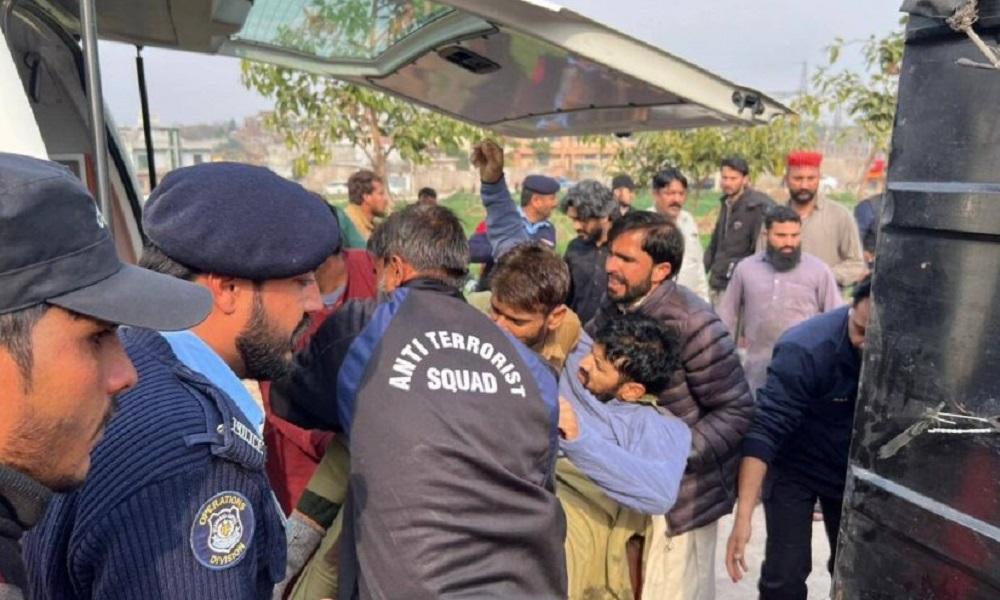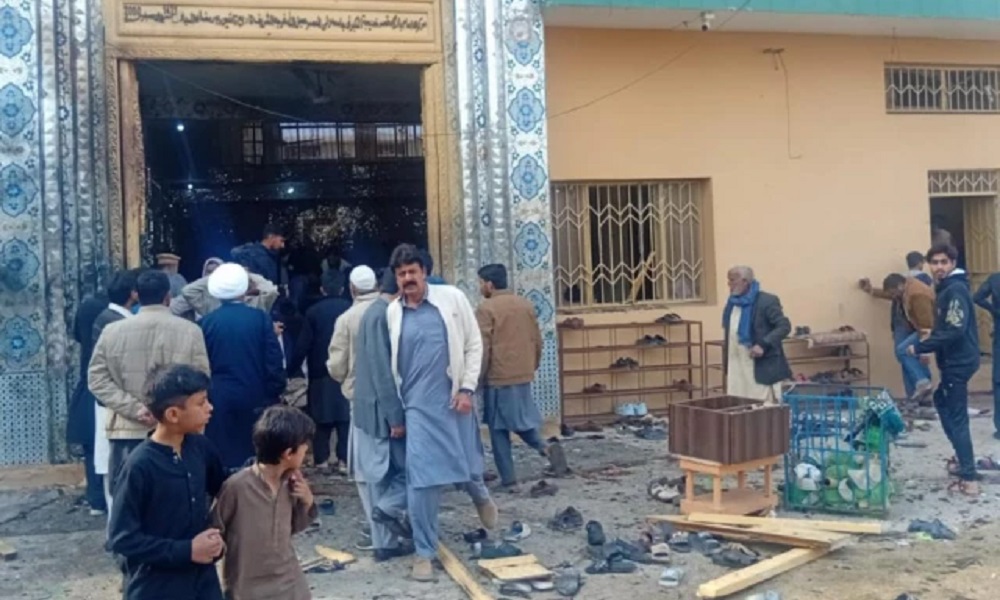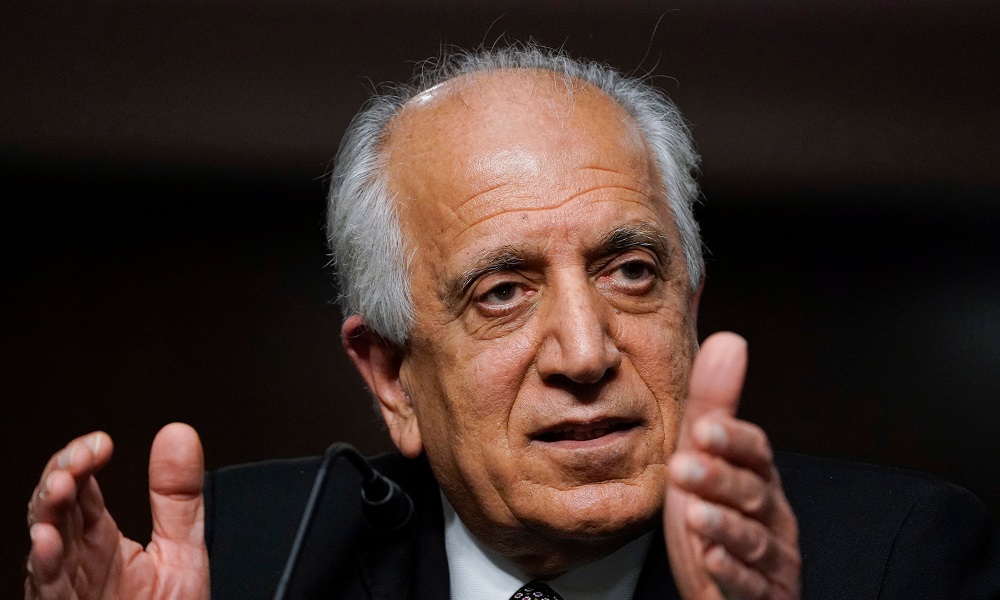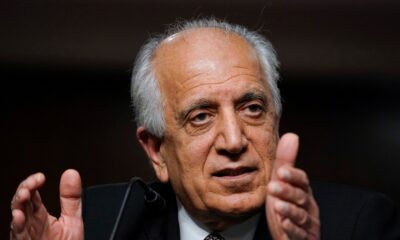Latest News
Melon yield in Kunduz increases by 20%

Officials at Kunduz Department of Agriculture and Livestock say this year’s melon yield has increased by 20 percent in this province.
“This year’s melon yield has increased by twenty percent compared to the previous year,” said Abdul Ghaffar Sediqi, head of Kunduz Department of Agriculture and Livestock.
Meanwhile, Kunduz farmers are also optimistic about the increase in melon yields in this province, but they ask the government to market their products so that they can be sold at a better price.
In addition, farmers say this year’s drought and lack of water has caused them to harvest melons early.
However, a number of melon sellers state that dozens of trucks full of melons are sent to other provinces for sale every day.
“Thanks to god, the harvest is better than last year,” said a melon seller.
Latest News
Islamic Emirate strongly condemns mosque bombing in Islamabad

The Ministry of Foreign Affairs of the Islamic Emirate of Afghanistan has strongly condemned Friday’s suicide bombing at a Shi’ite mosque in Islamabad, the capital of Pakistan, which left 31 people dead and 179 others wounded.
Abdul Qahar Balkhi, spokesperson for the Ministry of Foreign Affairs, said in a statement that the Islamic Emirate considers such attacks—which violate the sanctity of religious rites and mosques and target worshippers and civilians—to be contrary to Islamic and human values.
The Islamic Emirate also expressed sympathy with the families of the victims and wished a speedy recovery to the wounded.
Latest News
Suicide bomber kills 31 in Shi’ite mosque in Pakistan’s capital

A suicide bomber killed at least 31 people and wounded nearly 170 others during Friday prayers at a Shi’ite Muslim mosque in Pakistan’s capital, Islamabad, Reuters reported, citing police and government officials.
Images from the site showed bloodied bodies lying on the carpeted mosque floor surrounded by shards of glass, debris and panicked worshippers.
Dozens more wounded were lying in the gardens of the Khadija Tul Kubra Imambargah, in a semi-urban area on the outskirts of Islamabad, as people called for help.
Bombings are rare in the heavily guarded capital, although Pakistan has been hit by a rising wave of militancy in the past few years.
“The death toll in the blast has risen. A total of 31 people have lost their lives. The number of wounded brought to hospitals has risen to 169,” Deputy Commissioner Islamabad Irfan Memon said in a statement.
Two police officials said the attacker was stopped at the gate of the mosque before detonating the bomb. They asked not to be identified as they were not authorized to speak to the media.
Latest News
Central Asian leaders are urging Pakistan to improve Afghanistan policies, says Khalilzad

Former U.S. envoy Zalmay Khalilzad has highlighted the strategic importance of Pakistan’s relationship with Afghanistan, noting that visiting Central Asian leaders are likely encouraging Islamabad to strengthen its policies toward Kabul.
In a post on X, Khalilzad emphasized that Central Asian nations have a strategic interest in access to Pakistan and beyond, including the sea, to support their trade and connectivity projects. He pointed out that these countries are particularly focused on developing railways, pipelines, telecommunications, and electricity networks linking Central Asia and Pakistan—a move he said would also serve Pakistan’s interests.
“Of course, Afghanistan’s role is vital to the goal of regional connectivity and development,” Khalilzad said. “Stability in Afghanistan and good Pakistan/Afghanistan relations are the absolute prerequisite.”
He suggested that the Central Asian leaders visiting Islamabad are urging improvements in Pakistan’s Afghanistan policies and expressed hope that Pakistani authorities would listen to these recommendations.
Pakistani officials have repeatedly claimed that Afghanistan-based militants have carried out recent attacks in Pakistan. Kabul denied the charge, saying it could not be held responsible for security inside Pakistan.
Trade between the two countries remains suspended following a deadly clash near the Durand Line in October.
-

 Sport4 days ago
Sport4 days agoAFC Futsal Asian Cup 2026: Final eight confirmed
-

 Sport4 days ago
Sport4 days agoAfghanistan in new kit for T20 World Cup warm-up against Scotland
-

 Sport5 days ago
Sport5 days agoIran see off spirited Afghanistan to finish top of Group D
-

 Sport3 days ago
Sport3 days agoJapan trumps Afghanistan 6-0 in AFC Futsal Asian Cup quarter-final
-

 Sport2 days ago
Sport2 days agoHosts and heavyweights advance as AFC Futsal Asian Cup reaches semifinals
-

 International Sports4 days ago
International Sports4 days agoPakistan to boycott T20 World Cup group match against India
-

 Sport4 days ago
Sport4 days agoAfghanistan crush Scotland in ICC T20 World Cup warm-up
-

 Latest News1 day ago
Latest News1 day agoTerrorist threat in Afghanistan must be taken seriously, China tells UNSC

























